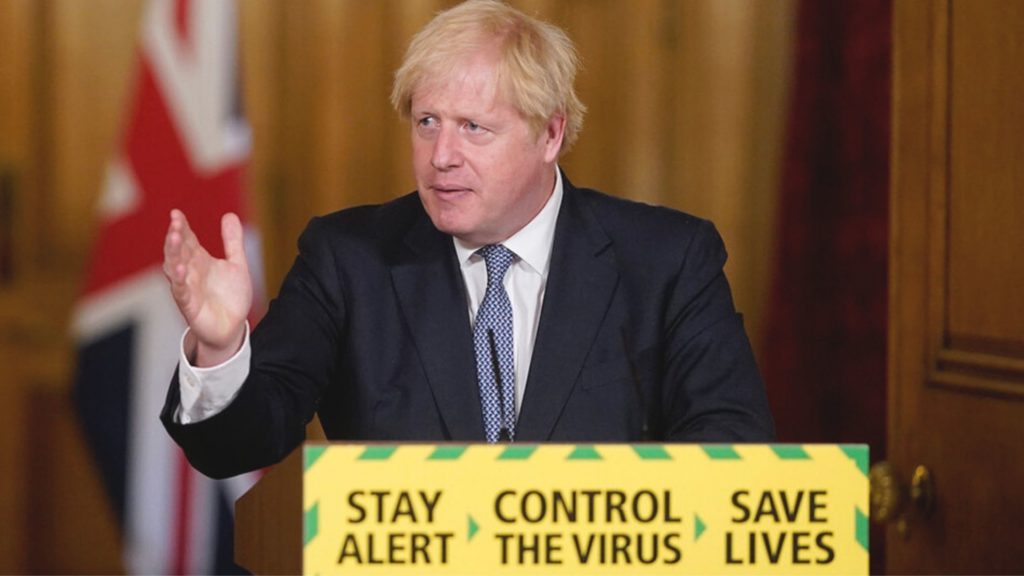‘Compared with people at low-trust companies, people at high-trust companies report: 74% less stress, 106% more energy at work, 50% higher productivity, 13% fewer sick days, 76% more engagement, 29% more satisfaction with their lives, 40% less burnout.’
Professor Paul Zak
Although leaders are only human, and therefore capable of making mistakes that they could be forgiven for, they should be held to a higher ethical standard than those that they lead. Particularly when we see the same mistakes time and time again.
I have been perplexed by what we have seen unfold in the media regarding Downing Street parties over recent weeks. At a time when many of us were separated from loved ones, to see those rules flouted by those who lead the country, does not instil trust.
To find out that Boris Johnson, Prime Minister, was socialising at a time when he had asked the nation not to, and then to try and pass it off as work meetings, makes you feel like he cannot be trusted. And if we can’t trust him on this, what else has he done in his time as Prime Minister that is also untrustworthy.
Leaders should not be beyond reproach
Leaders should not be beyond reproach and need to be held accountable for their actions. They need to face the consequences where their actions betray the people they lead and disregard the rules and regulations we are expected to abide by. Particularly where they have set those rules and regulations themselves.
The Ministerial Code says politicians “should be truthful” and must “comply with the law and protect the integrity of public life”. It can’t be one rule for them and one for everyone else. As Prime Minister, Boris Johnson should not be above the law.
Should he stay or should he go? If he stays, what then of all those people who received hefty fines for doing the same thing? Do they then get their fines revoked and the money paid back to them? If so, does this then make a mockery of the law?
Trust in leadership is essential
Trust in leadership is essential, and as leaders you need to act with integrity, be credible, reliable, and be authentic if you are to win the trust of those that you lead. The more your teams trust you as a leader, the more likely they will work effectively as a team.
The Institute of Leadership and Management conducted a survey in 2014 and found that the industries and sectors with the lowest internal trust where the employees didn’t trust their own organisations, were in turn not trusted much by the public either.
There is a strong link between consumer and employee trust levels and consumers avoiding organisations they do not trust. This does not bode well for those organisations where there is a low level of trust.
Establishing trust as an introverted leader
For introverted leaders, when it comes to establishing trust amongst your teams and stakeholders, developing rapport will help to build trust. Depending on where on the introvert/extrovert continuum you are, may determine how well your initial meeting of people for the first time goes. If you are less sociable when first meeting people, you may find it more challenging to build rapport initially. However, being mindful of this means that you can make more of an effort to adapt your style and establish rapport.
Once you have built rapport, introverts are said to be good at establishing trust because of their ability to listen and empathise. Both of which are key aspects in developing trust. Furthermore, when it comes to creating trust amongst your teams, if they are proactive, introverted leaders are said to have the advantage. W hen it comes to teams that take the initiative, implement changes, and promote better strategies, introverted leaders are said to be more comfortable listening and considering their suggestions.
Something else to be mindful of is how you come across when you are drained of energy. A day of back-to-back meetings may leave you feeling like you want to slip away to recharge, and as a result you may not be so engaged with the people around you. This may make you come across as withdrawn or standoffish, which isn’t good for establishing trust.
Once you have established trust, it is important to maintain it. So, learn the lesson from Boris Johnson’s actions in how not to be a trusted leader, and don’t follow in his footsteps.
How do you go about establishing trust as a leader? Let me know in the comments below.
First published on LinkedIn.
Image used under an open government licence https://www.nationalarchives.gov.uk/doc/open-government-licence/version/3/
If you are an introverted woman and a senior leader and want to increase your confidence, influence and impact, take my free assessment and get a report identifying areas to develop. You can take the assessment here.

